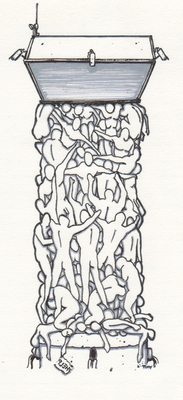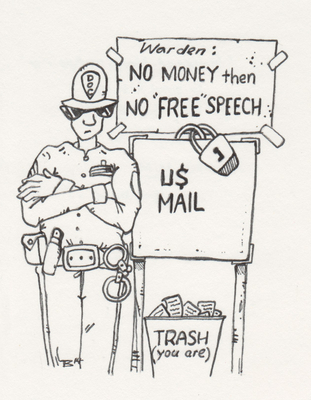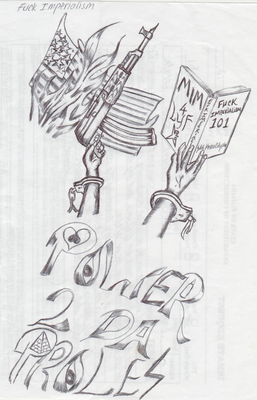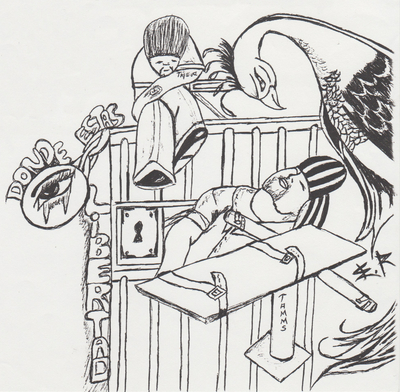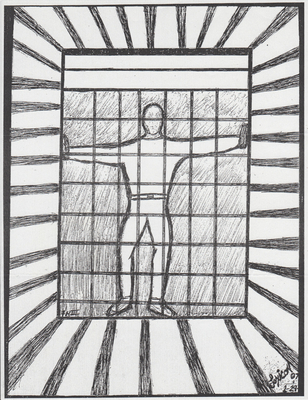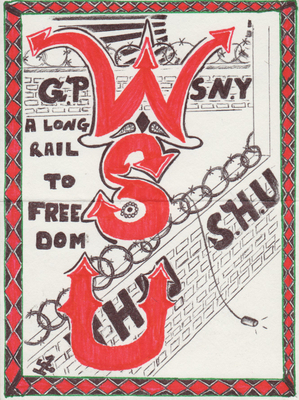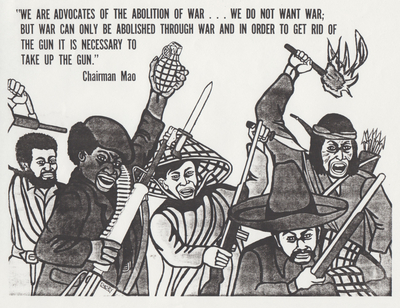
Shut Down the Oregon Long Term Program
There’s something I’d like to bring to your attention in hopes that you can possibly provide help in stopping and exposing Oregon’s long term isolation scheme. In late 2010 Oregon Department of Corrections (ODOC) started a program called “Long Term” (LT) that has 24 beds/cells. Administration can place someone in LT upon completion of a Disciplinary Segregation sanction and Intensive Management program. LT is permanent lockdown. There are no special criteria that get us placed there, nor any time limit to how long we can be kept on that status. Administration does what they want. Annual evaluations are done with no guarantee we’ll be released back to mainline.
From its implementation until the summer of 2013, the 24 LT cells were never completely filled up with LT status prisoners. I was placed there in May 2013 and only about half that section were on LT status. The rest were Intensive Management Unit (IMU) overflows transitioning back to mainline. From May until about January 2014 the Inmate Program Committee (IPC) were long-terming a group of prisoners for their first IMU shot for a fist fight. They had no misconduct while in IMU and they “successfully” completed their LT. It’s an admission that they know their IMU program doesn’t work, and by failing to release those prisoners back to mainline they never gave it a chance to work. One vato there is paroling within months and IPC didn’t want him to parole from mainline. There was no other reason for that decision.
By March 2014 every cell was filled up with LT status prisoners plus about 7 LT overflows who sat in a regular IMU cell, waiting for an LT cell to become available. Well, with annual evaluations only happening in October, the only way an LT cell will become available is if someone gets kicked out and sent back to an IMU unit for disciplinary reasons. In the last annual only 3 people were released back to mainline. So it raises the question: why are they all of a sudden long-terming so many people if there’s no room?
By May 2014 they were up to 14 LT overflows. Well, one of the counselors admitted what we were already suspecting: It’s all a scam they’re pulling with their head honchos in the Dome Building to expand the LT isolation housing. Their intent was to fill up every cell so they can go to their bosses demanding more cells and funds. But they got denied. However, people are still getting assigned to LT. Maybe they feel that as long as they keep the numbers up the Dome will eventually have to relent, which explains a lot of the trips the counselors here have been taking to Salem to push their manipulative agenda. Oregon is turning into a permanent lockdown state. And all this is at the expense of simple decent humanity and civil rights. Many prisoners in LT right now are victims of these pigs’ schemes and do not belong there.
Three codes of ethics all DOC employees are supposed to abide by are honor, respect, and dignity. This scheme contradicts all three. I would like to get activist and civil rights groups involved to hopefully shut the program down, or at least to prevent it from being expanded as part of some game these pigs are playing.
MIM(Prisons) responds: This program is similar to what we see in the criminal injustice system across Amerika, where prisoners are put in long term isolation cells for no particular reason, and given no opportunity to appeal this placement. In many places it is used as punishment for political organizing. This isolation is a form of torture, and counter to every supposed aim of rehabilitation. We look forward to working with comrades in Oregon to expose and fight this program.







